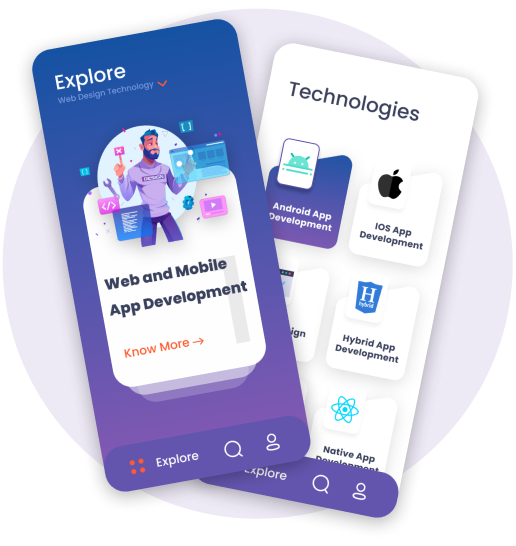
High-Quality Cross-Platform Apps Built with a Single Codebase
mTouch Labs is a performance-driven Flutter app development company delivering high-quality cross-platform mobile applications for startups, enterprises, and digital product companies.
Flutter app development involves building mobile applications using Google's Flutter framework, allowing developers to create cross-platform apps from a unified codebase with native-like performance.
A professional Flutter development company ensures consistent UI across devices, faster time-to-market, optimized app performance, and scalable architecture — ideal for businesses seeking rapid deployment without compromising quality.
As a trusted mobile app development company, we leverage Flutter to deliver visually consistent, high-performance apps across both iOS and Android platforms.
We build cross-platform apps with structured engineering and scalable architecture:
From MVP to enterprise scale, we cover every stage of Flutter app delivery
Consumer mobile apps, enterprise mobility solutions, on-demand service platforms, eCommerce applications, and SaaS mobile products — each built for long-term maintainability.
Single codebase efficiency, consistent feature implementation, unified design system, and faster updates — reducing complexity while maintaining high performance.
Custom widget-based interfaces, smooth animations, responsive layouts, and platform-adaptive designs. Our UI/UX design team ensures intuitive mobile experiences.
REST & GraphQL APIs, cloud databases, third-party services, payment gateways, and authentication systems — structured for scalability and security.
Cross-device testing, performance benchmarking, code optimization, security validation, and app store deployment support ensuring reliability across all environments.
We focus on predictable delivery and scalable design.
We combine speed with structured engineering to deliver reliable cross-platform apps.
Our Flutter solutions integrate with modern backend and cloud infrastructure. We also offer cross-platform development using other frameworks.
Everything you need to know about Flutter app development
Flutter app development involves building cross-platform mobile applications using a single codebase for both iOS and Android devices, powered by Google's Flutter framework.
Yes. Flutter supports scalable architecture and integrates seamlessly with backend systems, making it ideal for enterprise application development.
Development timelines depend on features and complexity but are typically 30–50% faster than separate native builds thanks to the shared codebase.
Yes. We offer ongoing app maintenance and support including performance updates and feature enhancements.
Let's discuss how Flutter can accelerate your mobile app delivery and reduce development costs.
Get a Free ConsultationConnecting...
 Chat with us!
Chat with us!